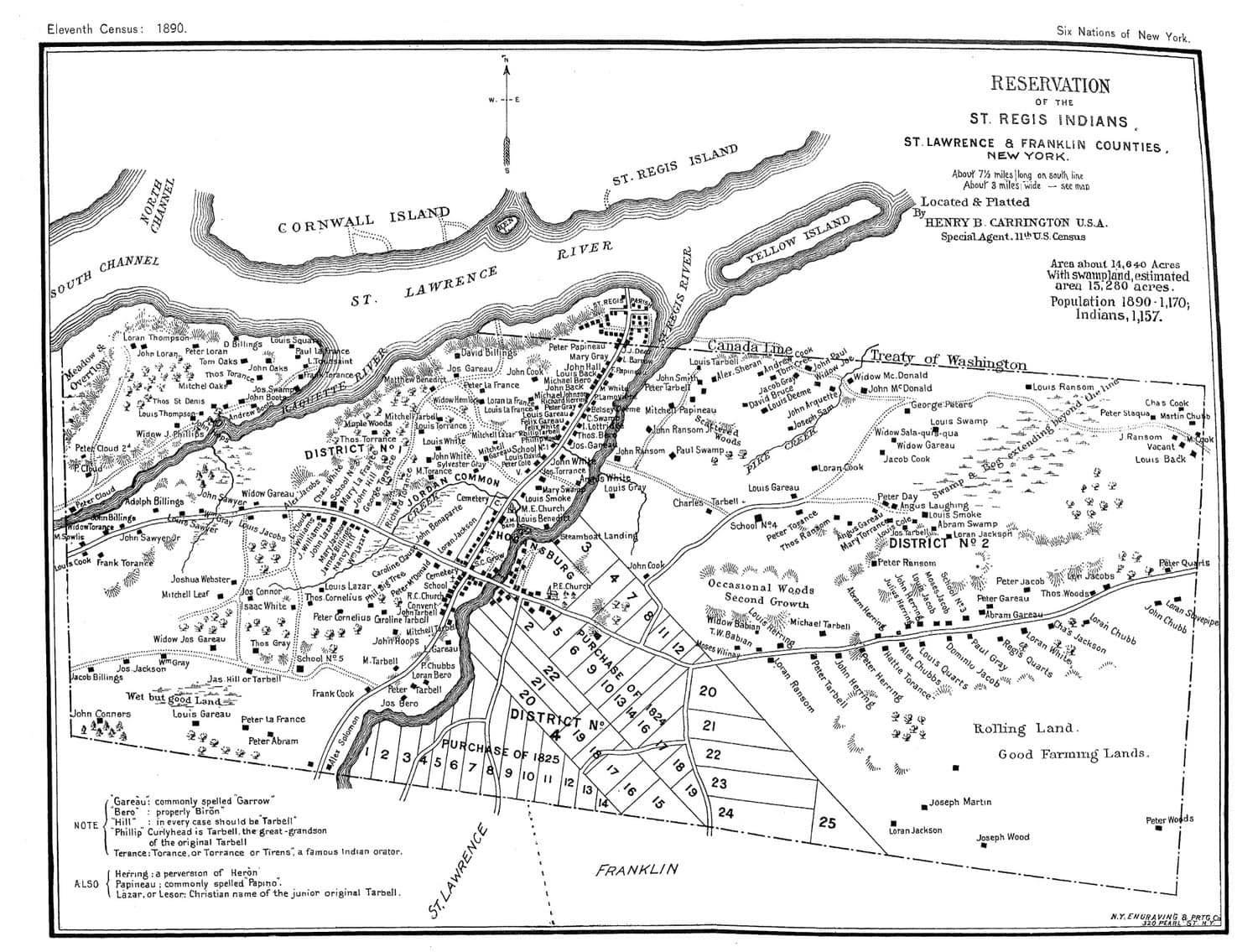Don’t back down
Children at Cornwall Island Indian day school in Akwesasne pose for a group photo in 1953, the first year of the school’s operation. It is currently the site of a community centre and daycare. (Courtesy: Mohawk Council of Akwesasne)
Story told by Alma Ransom
I grew up on Yellow island in Akwesasne and you had to row a boat to cross to the mainland. There were no schools on the island so I didn’t have to go to school till I was able to row the boat myself, along the island and then cross over where the school was. That's just the way things were.
In the winter, we had to walk for miles and cross on the ice. I wouldn’t go to school in the spring when the ice wasn’t safe or in the fall when the ice was coming in. Just when I could row the boat or walk on the ice.
But I still wanted to go to school because of the stress from my father. He spoke no English at all, much less write. He would say, “You’ll never get out of here, you’ll be trapped here like me. You’re never gonna be able to leave unless you go to school.” The schools there were terrible, looking back. The teacher would be talking English and it would be quiet, nobody answers because we didn’t speak English.
But now, my children don’t speak a word of Indian because it took me so long to learn English. I didn’t want them to go through that. I didn’t want them to hesitate when people talked to them.
They did well in school. That was my dream. Then people started realizing that several generations of people were not speaking our language. The children that returned from residential school had no touch of the Indian language at all. It was gone. They didn’t even know their names. They were just numbers at those schools.
Their children and their grandchildren were the ones that raised hell. They said, “Who’s gonna teach us?” They got tough and didn’t back down. That’s the point.
KANIEN’KÉHA VERSION
↓
KANIEN’KÉHA VERSION ↓
Iah Tethonatia'tatihénthon'
Alma began attending Snye school and later transferred to St Regis Village school, pictured here. (Courtesy: Akwesasne Vintage Archives)
Alma Ransom IAKOKÁ:RATON
Teken'tarèn:re' nonkwá:ti takatehià:ron' ne Ahkwesáhsne tánon' ó:nen'k tsi shos enhsathonwà:reke' tsi tenhsià:ia'ke' ne iáhsewe' onhontsakwe'niiò:ke. Iah káneka tsi ionterihwaienstáhkhwa' tekanonhsó:tahkwe' ne kawehnò:ke ne ki' iah tha'teiotonhontsohòn:ne' akaterihwaienstà:na' tsi niió:re wa'kkwé:ni' wa'kathonwà:reke' akonhà:'ak, kawehnohkwaktóntie' sok tenkeniatarí:ia'ke' eh nentié:ra'te' tsi nón:we tsi ionterihwaienstáhkhwa' tkanónhsote'. Thok ki' niiohtòn:ne'.
Ne akohserà:ke, é:ren niió:re ehta'kéhshon ieniákwe' tánon' teniakwawisí:ia'ke'. Iah thakaterihwaienstà:na' ne kakwitè:ne nó:nen iah teiowisahní:ron tóka' ni' ne kanenna'kè:ne nó:nen taiowisontátie'. Thò:nek ki' nó:nen enkkwé:ni' enkathonwà:reke' tóka' ni' ehta'kéhshon ién:ke' nowisà:ke.
Nek tsi shé:kon wa'kahská:neke' nakaterihwaienstà:na' ase'kénh rake'níha wahakwathní:ratshe'. Iah othé:nen Tiohrhèn:sha' tehatá:tiskwe', sha'té:ioht nahahiá:ton'. Enhèn:ron', "Iah nonwén:ton é:ren thaonsáhsehte' ne kèn:tho, enhsewehnó:take' tsi ní:ioht nì:'i'. Iah nonwén:ton' thaón:ton' é:ren aonsáhsehte' tsik tóka' enhsaterihwaienstà:na'." Kwah iah teioiánere' tsi nihatiiéhrhahkwe' tsi ionterihwaienstáhkhwa' nonkwá:ti, tsi ohnà:ken ieskatkáhthos. Tiohrhèn:sha eniontewenón:tahkwe' ne iakorihonnién:ni tánon' kwah shah thenwá:ton', iah ónhka tha'taierihwa'será:ko' ase'kénh iah teiakwatá:tiskwe' Tiohrhèn:sha.
Map from 1890 depicting Akwesasne, what was previously named St. Regis reservation. (Courtesy: Akwesasne Vintage Archives)
Ok nòn:wa, iah tsowén:na Onkwehonwehnéha tehontá:tis ne kheien'okòn:'a' ase'kénh karì:wes tsi niió:re' wa'kà:ronke' Tiohrhèn:sha. Iah tha'tewakatonhontsoníhne' ok ne shà:ka' taonsahonatohétston. Iah tha'tewakatonhontsoníhne' aontahontón'neke' nó:nen enhonwatiwén:nara'ne'.
Wahotiiáneren'se' tsi nikarì:wes wahonterì:waienste'. Kwah nè:'e wa'kahská:neke'. Sok thò:ne ón:kwe wahónttoke' tsi tohkára na'tewatere'será:ne iah tehontá:tis nonkwawén:na'. Iah tsowén:na tehatiienteríhne' nonkwawén:na' ne tsi niká:ien' tehonwatikhahsiónkwen tsi ronterihwaienstáhkhwa' na'tethoné:non. É:ren ronenonhtén:ni. Kwah iah ò:ni' tehatiienteríhne' nahò:ten' ronwatiiátshon. Ionhsetáhkhwa' ohiatónhkwa' khok nithatiia'to'ténhne' tsi ionterihwaienstáhkhwa'.
Rotinonhskarihá:ton nà:'a ne raotiksà:ta' tánon raonaterè:sera'. Wahonnì:ron', "Ónhka enionkhirihónnien'?" Wahonthní:rate' tánon' iah tethonatia'tatihénthon. Kwah nè:'e ne tkarihwakwe'ní:io.
Edited by: Emma McLaughlin, Local Journalism Initiative Reporter
Translation by Karonhí:io Delaronde



